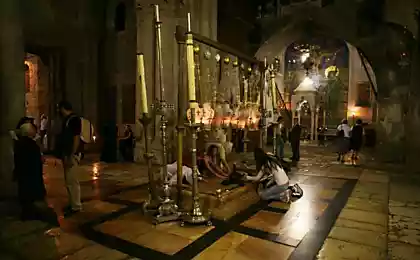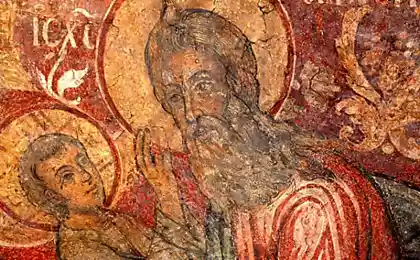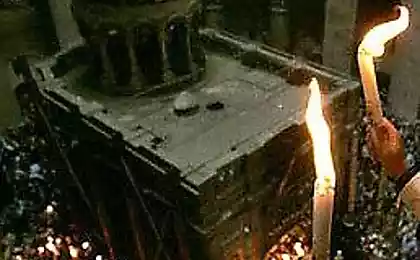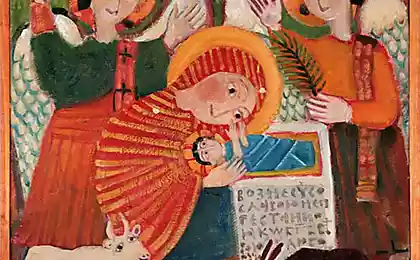174
Empathy with Christ - what to do if you can not be in the temple on Easter
Although we walk with our feet to the temple, we are baptized with our hands, we bow with our whole body, this is not what is called spiritual life.
There are many Orthodox people in the world whose work schedule does not allow them to be in church all Sundays and holidays.
Whether spiritual life is reduced to a mechanical set of its external manifestations, reflects Priest Dimitri Turkin.
Among Orthodox people there are many who work almost without a weekend, or work on holidays. This question, of course, concerns both Easter and Holy Week.
Many would like to spend this time spiritually, prayerfully, perhaps even in the temple, during worship, approaching what they would like to make the main thing in their lives. But they can't, because that's what the circumstances are.
This question, although it arises right now, before Easter, is actually more general: how to unite secular life with church life. There are several approaches to this.
Spiritual life is not something we do with our hands and feet. Although we walk with our feet to the temple, we are baptized with our hands, we bow with our whole body, this is not what is called spiritual life. These are the methods of spiritual life, the things that can lead a person to it. But maybe not.
Thus, although it is offensive to hear and difficult to speak while in worship, a person may well be absent there in a spiritual way.
This is one of the extremes when a person came to the service, lit candles, makes bows, even confesses and communes - and at this time is absent. Not because he is bad, but because no one has given him such a task. Or he didn't put it on himself because he didn't have time.
So, there are people who are really absent from the service and are forced to work even on Easter itself – simply because there are such works that cannot be stopped – a doctor in an ambulance, a law enforcement officer, a transport driver and a lot of other things that require constant human participation.
What do these people do? Here.They can and must, even before the feasts come, experience inwardly everything they know about Christ, about God in general, about the Church, about the saints. You have to worry all the time.
I will not reveal anything new if I say that every liturgy is a remembrance of Easter, and not only Easter, but also Christmas, and the preaching of Christ, and His crucifixion. And this is every liturgy that can be served outside of fasting every day.
And you can, by the way, find such temples where this Easter joy can be experienced not only at Easter, but always.
Anyone who knows even a little knows how many chants, prayers, and references to the Sacred History in which we should be aware of ourselves as participants are in each service.
Don't be afraid of it.In our minds, we have made worship a kind of theater. And worship is not a theater, it is the most important life.Simply because many people do not experience it from childhood and do not experience it correctly, for them the liturgy is such an action. And for others, it is life, it is just another – spiritual, and it must conform.
We need to read a little about it, figure it out. And then, if you are at work for Easter, you can rejoice inwardly, knowing that Christ has risen. And it is a secret that is always with you and will not go away from you, and joy that will never leave you.
Recorded by Daria Mendeleeva
Video: Victor Aromstam
Source: www.pravmir.ru/soperezhivanie-hristu-chto-delat-esli-na-pashu-ne-mozhesh-byit-v-hrame/
There are many Orthodox people in the world whose work schedule does not allow them to be in church all Sundays and holidays.
Whether spiritual life is reduced to a mechanical set of its external manifestations, reflects Priest Dimitri Turkin.
Among Orthodox people there are many who work almost without a weekend, or work on holidays. This question, of course, concerns both Easter and Holy Week.
Many would like to spend this time spiritually, prayerfully, perhaps even in the temple, during worship, approaching what they would like to make the main thing in their lives. But they can't, because that's what the circumstances are.
This question, although it arises right now, before Easter, is actually more general: how to unite secular life with church life. There are several approaches to this.
Spiritual life is not something we do with our hands and feet. Although we walk with our feet to the temple, we are baptized with our hands, we bow with our whole body, this is not what is called spiritual life. These are the methods of spiritual life, the things that can lead a person to it. But maybe not.
Thus, although it is offensive to hear and difficult to speak while in worship, a person may well be absent there in a spiritual way.
This is one of the extremes when a person came to the service, lit candles, makes bows, even confesses and communes - and at this time is absent. Not because he is bad, but because no one has given him such a task. Or he didn't put it on himself because he didn't have time.
So, there are people who are really absent from the service and are forced to work even on Easter itself – simply because there are such works that cannot be stopped – a doctor in an ambulance, a law enforcement officer, a transport driver and a lot of other things that require constant human participation.
What do these people do? Here.They can and must, even before the feasts come, experience inwardly everything they know about Christ, about God in general, about the Church, about the saints. You have to worry all the time.
I will not reveal anything new if I say that every liturgy is a remembrance of Easter, and not only Easter, but also Christmas, and the preaching of Christ, and His crucifixion. And this is every liturgy that can be served outside of fasting every day.
And you can, by the way, find such temples where this Easter joy can be experienced not only at Easter, but always.
Anyone who knows even a little knows how many chants, prayers, and references to the Sacred History in which we should be aware of ourselves as participants are in each service.
Don't be afraid of it.In our minds, we have made worship a kind of theater. And worship is not a theater, it is the most important life.Simply because many people do not experience it from childhood and do not experience it correctly, for them the liturgy is such an action. And for others, it is life, it is just another – spiritual, and it must conform.
We need to read a little about it, figure it out. And then, if you are at work for Easter, you can rejoice inwardly, knowing that Christ has risen. And it is a secret that is always with you and will not go away from you, and joy that will never leave you.
Recorded by Daria Mendeleeva
Video: Victor Aromstam
Source: www.pravmir.ru/soperezhivanie-hristu-chto-delat-esli-na-pashu-ne-mozhesh-byit-v-hrame/























